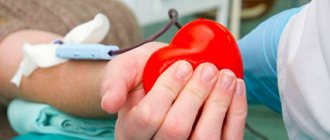All coffee fans sooner or later become interested in the question of how their favorite drink affects health, especially children's health. Adults themselves are responsible for their own lives, and the well-being of children directly depends on parental behavior. It is important to make the right choice, the consequences of which are important for the health of the growing child. Can children drink coffee? We are trying to find the answer to this pressing question in this article.
When can a child drink coffee?
A child’s body should not exceed the norm of 50 - 125 ml of caffeine per day, but this is a controversial statement, since much depends on the age and health of the child. When you consider that foods like chocolate and tea also contain caffeine, children quickly reach their maximum daily intake. For example, a cup of cocoa with 250 ml or 50 grams of dark chocolate contains almost 60 ml of caffeine.
According to the experience of many parents, the age of 14 is optimal for a child to drink limited coffee. But it is worth understanding that this is a socially constructed, not a biological, boundary.
Drink harm to baby
Doctors contraindicate frequent consumption of products containing caffeine, especially for children. It is advisable to know not only at what age coffee can be consumed, but also the negative consequences of the drink, which:
- adversely affects hormonal levels during puberty;
- increases adrenaline, causing heart rhythm disturbances;
- increases blood pressure, which is dangerous for hypertensive patients;
- raises sugar, which has a detrimental effect on the pancreas;
- removes useful substances from the body in large quantities.
So can a child have coffee? Despite the danger for a fragile body, one should not draw hasty conclusions. The main thing is not to accustom your child to the drink from an early age or give decaffeinated coffee, which can be drunk by children from 6-7 years old.
Five main coffee substitute options
For many people, coffee is an integral part of everyday life, which is why children, looking at their parents, follow their example. If you want to limit your consumption or avoid coffee altogether, you can resort to alternative options.
Cocoa
Probably the most ideal option among coffee substitutes for a child is cocoa. In addition to being delicious, cocoa is also very healthy. When consuming cocoa, the child receives a full range of vitamins and minerals. Cocoa synthesizes endorphins and improves mood. Very popular with children and can satisfy hunger. According to established standards, children under 5 years of age should not exceed 50 ml of cocoa daily intake, and should not be consumed every day.
Barley coffee
Despite its name, barley coffee is not always made from barley. In fact, this is the general name for coffee drinks for those who lead a healthy lifestyle. Such drinks are made from barley, chestnuts, wheat and grains. It contains many useful vitamins and minerals. Barley coffee is completely acceptable for a child and can even be beneficial, since it contains absolutely no caffeine. It is recommended to cook it with milk or with the addition of condensed milk.
Acorn coffee
Acorn coffee is considered one of the best coffee substitutes. Due to the fact that acorns contain a huge amount of vitamins and minerals, this type of coffee becomes very healthy. Acorn coffee has no strict restrictions and is therefore not contraindicated for children. However, it is worth remembering that if you make this coffee yourself, it is not recommended to give it to children under 3 years of age, since if not processed correctly, a lot of toxic substances remain in the acorns.
Coffee chicory
Chicory drink is made from the roots of the flower. The roots are cut into small pieces, dried and then fried. The juice contained in the roots caramelizes when roasted and imparts a coffee flavor. It is not recommended to give chicory coffee to children under 3 years of age. Despite its huge list of beneficial vitamins and minerals, the drink causes allergies. Recently, chicory can be seen more and more often in kindergartens. These so-called preventive measures are aimed at protecting the gastrointestinal tract and reducing excess weight in children.
Coffee with lupine
Lupine is a versatile plant - in addition to milk and meat substitutes, it can also be used to make coffee. Lupine coffee is very aromatic and has a similar taste to coffee beans.
Optimal age for coffee
To figure out at what age children can drink coffee, you need to consider different groups:
- Drinking coffee is not recommended for children under 5 years of age. A fragile nervous system may react differently to caffeine. Increased excitability is usually observed.
- By the age of five, most children have already tried a drink from their parent's cup. However, their nervous system is still at the stage of formation. Therefore, in rare cases, you can give a weak drink with a large amount of milk.
- 12-year-olds want to be like their older peers. Coffee is becoming a new attribute of life. At this age, you should not abuse caffeine. This is due to hormonal changes in the body.
So at what age can you give your child coffee? According to doctors, it is safe to drink the invigorating drink from the age of 14. Although it must be taken into account that puberty occurs differently for all people. It is important to make sure that the child’s hormonal surges have already passed. It is advisable to convince the teenager that coffee is not a substitute for water.
What are the effects of drinking coffee on children?
Half a glass of coffee (100-200 milliliters) is a huge dose of caffeine for a child - and this is without specifying other sources of caffeine. Large amounts of caffeine in the body can have the same effects in children as in adults: lack of concentration, fatigue due to sleep disturbances, headaches, anxiety and stomach pain.
The coffee substitutes described above contain a small amount of caffeine. They are mainly made from sugar and therefore do not have the same effect on the body and are only harmful for weight problems.
Tags: benefit or harm, products
The effect of coffee on the body
Any product or drink affects the chemical and physiological processes occurring in our body. Coffee is no exception.
What's in coffee?
- The main active ingredient is caffeine. It is this that gives your favorite drink an invigorating effect.
- Caffeine is part of the group of alkaloids, which includes many nitrogen-containing organic compounds. Caffeine’s “colleagues” are a variety of active substances, for example, nicotine, cocaine, quinine, and even strychnine.
- Coffee beans contain protein, fiber, sucrose, many minerals and even tannins.
The chemical composition of coffee beans includes hundreds of substances. At present, no more than half of them have been studied.
The caffeine content of Arabica coffee beans ranges from 0.7 to 2.5%, while the lower-grade Robusta contains 1.5 to 3.2% caffeine. There is 10 times more fiber in coffee than caffeine, and 3 times more tannins.
To be fair, it should be noted that caffeine is the most active ingredient in the drink, and its content increases when raw coffee beans are roasted by about 10-20%. The stronger the degree of roasting, the stronger the coffee, the more caffeine it contains.
How does caffeine work?
- It suppresses neurohormone receptors that cause relaxation and drowsiness. Therefore, reaction speed and perceptual acuity improve.
- Caffeine stimulates the production of adrenaline, so a person feels alert and energized. The activity of all body systems, including the brain, increases.
- This active substance releases glucose and stimulates its entry into the blood, which also contributes to a surge of strength and increased activity.
- Caffeine increases the level of the neurohormone dopamine, stimulating its production and release into the blood. Hence the feeling of a good mood after a cup of your favorite drink, because dopamine is one of the so-called “hormones of happiness.”
This is the hormonal-chemical cocktail a person receives with every cup of coffee.
By itself, it does not cause any tangible harm to the body, except perhaps an increase in blood pressure, which may not respond very well to people with a tendency to hypertension. The problem is not so much the caffeine itself, but the amount of it. As ancient doctors said: there is medicine in a spoon, poison in a cup. Small doses of caffeine become an excellent tonic and mild natural stimulant. Excessive amounts of caffeine lead to many unpleasant consequences for the body.
These include dehydration, tachycardia, anxiety, sleep disturbances, metabolic disorders and nervous system imbalance. This also includes developing the habit of regularly drinking coffee, and then the absence of a morning cup of your favorite drink will be perceived by the body as very painful, even to the point of developing depression.
An adult in normal health can drink 3 to 5 cups of coffee daily without harming himself.
Quantity
According to doctors, babies can drink weak coffee, but with some reservations:
- For the first time, children should be offered a coffee drink from 1 mug over a period of 30 days. Gradually the volume can be increased to 1 weekly serving.
- If a 7-year-old child wants to drink a coffee shake, he should dilute the strong liquid with the same amount of milk. At this age, you should not consume more than 1 serving per month.
- At the age of 10 years, a coffee mix mixed with a milk component can be drunk three or four times a month.
- Teenagers 12-14 years old are allowed to drink the cocktail twice a week. But such a drink should not contain large doses of caffeine.
It is necessary to completely abandon the aromatic mix if the baby is diagnosed with pathologies of the liver, cardiovascular system, kidneys, if he suffers from tuberculosis, insomnia, stomach ulcers, high blood pressure, or blurred vision.
Also, due to the active diuretic effect, such cocktails should not be drunk if you have enuresis.
Rules of use
- Pour into a cup as little ground grains as possible to the usual volume of water.
- If you are interested in the question of what kind of coffee you can give your child when starting his acquaintance with this drink, the answer is diluted with milk.
- It is unacceptable to start your acquaintance with instant coffee. It only brings harm to adults too. Unlike a grain drink, it lacks the vitamins and acids necessary for the body, but contains undesirable ingredients.
- Do not give coffee in large quantities.
- It is unacceptable to drink coffee on an empty stomach. It is better to take it in the morning, but after taking a full breakfast. It is unacceptable to drink it before bed.
- It is not recommended for children to make coffee from green beans, as such a drink has an even greater effect on the nervous system.
- Introduction to coffee should be gradual; the child’s body should have time to return to normal. Thus, a break of a day is mandatory, preferably three.
- It is also better to exclude decaffeinated coffee, because it can cause undesirable reactions in the child’s body, from allergies to problems with the gastrointestinal tract.
- Coffee sticks are actually a fairly low quality caffeine powder. This drink contains preservatives and dyes, and a small percentage of tonic substances. If you consume this “coffee” regularly, you will experience problems with your teeth and stomach.
To this day, I don’t like coffee, I don’t feel like drinking it. And my son, who is now 13 years old, has long been interested in this drink. I am categorically against him drinking it. I always gave my son cocoa with milk, passing it off as coffee. When the son grew up, he learned the truth, but still continues to be content with cocoa.
Now you know at what age you are allowed to drink coffee. As you can see, there is no need to rush to introduce your child to an invigorating drink. Parents should remember the negative effect coffee can have on a baby’s growing body. We should not forget that for some children it is generally contraindicated due to the presence of certain diseases; drinking coffee can have serious consequences for their health.
Products containing caffeine
Parents often give coffee to their children, believing that only it contains caffeine, which has a beneficial effect on the body in small dosages. However, it is not. A similar element is also present in:
- green tea;
- cocoa;
- hot chocolate;
- carbonated drink Coca Cola;
- chocolate bar;
- mate;
- industrial energy drinks.
Be sure to read: A little helper for creating milk foam in cappuccino
If your baby consumes large quantities of any of the listed products, you need to think about whether it is worth adding coffee to the diet, because caffeine enters the body from other dishes.
Benefits of coffee beans
In reasonable quantities, coffee is a very healthy drink for an adult. The dark brown, almost black grains contain vitamins A and D, flavonoids and various minerals, including iodine, calcium, phosphorus and magnesium. Undoubtedly, all these substances can be useful for a growing baby, because they take part in many metabolic processes and help strengthen the immune system.
The coffee drink has some valuable properties that have a beneficial effect on the child’s body:
- promotes active brain function;
- helps to better remember information and generally improves memory;
- provides easy awakening and gives a boost of energy in the morning, helps you get ready for school faster;
- reduces the feeling of fatigue;
- increases attention;
- has a beneficial effect on the speed of nervous reactions and improves physical activity;
- relieves allergy attacks and asthma;
- serves as a good prevention of dental diseases;
- promotes more active work of the stomach;
- reduces harm from exposure to radiation;
- helps the child gain confidence in his own abilities and get rid of some fears, improves overall well-being and mood.
But don't flatter yourself! Some parents believe that the above arguments are quite enough to give their child this invigorating drink with peace of mind.
Pediatricians are categorical on this issue: the harmful effects of a child drinking coffee exceed the positive properties of the drink, and in some cases even devalue them.
It is no coincidence that coffee is considered a tonic for adults, which can negatively affect the health of a child at an early age. Therefore, this invigorating drink can be introduced into the menu of a growing child only from the age of 10 years. But there are doctors who do not advise giving coffee to teenagers even before the age of 16.
Coffee with milk: benefits and harm for children
According to pediatricians, a child over 12 years old can drink coffee diluted with milk. This method of preparing the drink makes it weak and healthy. The tonic and invigorating effects are preserved, thanks to which the child will be able to concentrate and better perceive surrounding information. Doctors recommend that children drink coffee with milk in the morning so as not to provoke insomnia. Until the age of 14, the nervous system develops most actively, so excessive stimulation in the afternoon and evening will lead to rapid exhaustion.
Not Recommended Options
Strong coffee variations like ristretto or doppio are categorically not recommended, even in original small cups. Single-use “three-in-one” sachets are not particularly recommended even for adults. Such mixtures contain at least a third of sugar (which is quite a lot), and the coffee itself used in the mixture is of low quality, no matter how much advertising says otherwise.
In addition, the child should develop his own level of coffee consumption. By getting used to a certain number of spoons of powder, he will be able to safely drink both instant and brewed coffee in the future.
What to do if your baby accidentally drinks coffee
Parents, taught by bitter experience, know that a cup of coffee should be hidden from children. If a child likes the taste of a drink, he will look for any way to get it. No prohibitions or persuasion will stop the baby. If trouble occurs and the child manages to drink strong coffee, the main thing is not to panic. Usually, with a single use, nothing bad will happen to the body.
Side effects of caffeine include:
- gagging;
- restless state;
- sleep disturbance;
- allergic reaction in the form of spots on the skin;
- cardiopalmus.
If the problem does not go away for a long time, you should immediately consult a doctor. Although in healthy children the symptoms go away on their own without the help of a specialist.
And if your child loves coffee so much, then you should not deny him this drink, especially since you can offer your child safe, but no less tasty coffee.











